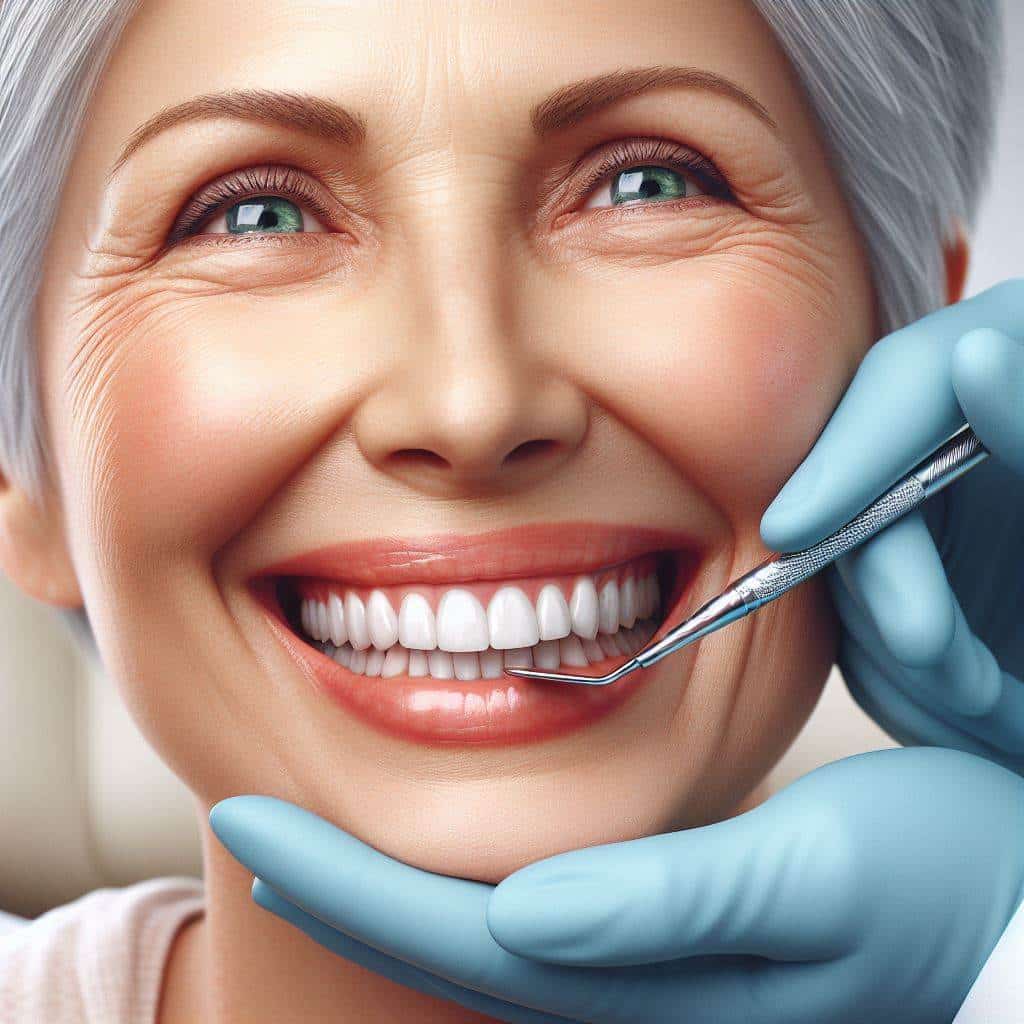- 1. The Undeniable Importance of Regular Dental Check-Ups
- 2. The Role of Regular Dental Visits
- 3. Maximizing Benefits from Dental Appointments
- 4. Navigating Dental Care in the Golden Years
- 5. Routine Dental Visits: Essential Strategies for Enhancing Senior Oral Health
- 6. Why Regular Dental Check-Ups are Crucial for Seniors: Your FAQs Answered
As we age, our health demands more attention and care, not least of all our oral health. For seniors, regular dental check-ups are not just a routine; they become crucial in maintaining not only oral health but overall well-being. Yet, the significance of these visits can often be underestimated, overlooked, or shrouded in apprehension.
This guide aims to decode the mystery behind dental visits for seniors, unraveling why they are more than necessary – they are essential. From detecting early signs of gum disease to preventing serious health issues linked to oral health, this article illuminates the profound impact regular dental check-ups have on senior health.
The Undeniable Importance of Regular Dental Check-Ups
Did you know that your oral health offers clues about your overall health? Or that problems in your mouth can affect the rest of your body? This connection is especially significant for seniors. With advancing age, the risk of dental issues such as tooth decay, gum disease, and oral cancer increases, making regular dental visits a critical component of senior health care.
But it’s not just about preventing and treating oral health issues. Regular dental check-ups can reveal symptoms of systemic diseases like diabetes and heart disease, often detectable in their early stages in the mouth. For seniors, these appointments are preventive, diagnostic, and a vital part of maintaining a healthy lifestyle.
The Role of Regular Dental Visits
Early Detection of Oral Health Issues: Catching problems early can lead to simpler, more effective treatments and prevent more serious conditions from developing.
Management of Age-Related Dental Changes: Aging affects oral health in various ways, from dry mouth caused by medications to the challenges of cleaning teeth with arthritis. Dentists can provide solutions tailored to these age-specific issues.
Oral Cancer Screening: Seniors are at a higher risk for oral cancer, making regular screenings an important preventive measure.
Maximizing Benefits from Dental Appointments
To truly benefit from dental visits, seniors are encouraged to take a few proactive steps:
Prioritize Routine Check-Ups: It’s advisable for seniors to schedule dental appointments at least bi-annually. These regular visits allow for professional cleaning, which is crucial in preventing plaque build-up and tartar that can lead to more serious oral health issues. Moreover, routine check-ups facilitate the early detection of potential oral health problems, allowing for timely intervention.
Open Communication: One of the keys to effective dental care is open communication with your dentist. Seniors should feel comfortable discussing any oral health concerns they might have, no matter how minor they may seem. This includes issues like dry mouth, which is common among older adults due to medication side effects, sensitivity to temperatures, or challenges faced during daily oral hygiene routines. Addressing these concerns not only helps in customizing care to suit individual needs but also in educating seniors on managing their oral health more effectively.
Adhere to a Rigorous Oral Hygiene Regimen: While professional care is indispensable, daily personal care is equally crucial. Regular brushing, at least twice a day with fluoride toothpaste, and flossing can significantly bolster the efforts of dental visits in maintaining oral health. This daily routine helps in controlling plaque buildup, reducing the risk of gum disease, and ensuring the longevity of natural teeth and dental work.
| Concern | Impact on Seniors | How Regular Check-Ups Help |
|---|---|---|
| Gum Disease | Increases with age, affecting gum and overall health | Early detection and management |
| Oral Cancer | Higher risk in seniors, serious if not caught early | Regular screenings for early intervention |
| Dry Mouth | Common due to medications, affects oral health | Identification of cause and treatment options |
| Tooth Decay | Prevails due to aging and care challenges | Preventive care and treatment planning |
| Wear and Tear | Years of use can lead to dental issues | Assessment and restorative options |
Navigating Dental Care in the Golden Years
Integrating regular dental care into the lives of seniors is a multifaceted challenge that extends beyond mere appointment scheduling. It demands a nuanced approach, combining education, accessibility, and emotional support to create a positive and proactive dental care experience.
The Foundation of Education
The importance of dental health education cannot be overstated. A study published in the Gerodontology journal highlighted that seniors with a better understanding of oral health’s impact on overall well-being are more likely to seek regular dental care. This knowledge empowers them to see dental visits not as optional but as essential components of their health regimen. Educational programs tailored to seniors, focusing on the common dental issues they face and the systemic health problems associated with poor oral hygiene, can significantly alter their perception and approach to dental care.
Ensuring Accessibility
Accessibility is a critical factor in encouraging regular dental visits among seniors. The American Dental Association reports that transportation barriers significantly hinder seniors’ ability to receive dental care. Implementing community-based transportation services or partnering with local organizations can provide solutions. For instance, a program in a small town might coordinate volunteers to drive seniors to their dental appointments, directly impacting the number of seniors able to access care.
The Power of Emotional Support
The anxiety associated with dental visits is a real and pressing issue for many seniors, often stemming from past experiences or the fear of receiving bad news about their oral health. The role of emotional support in this context is crucial. A qualitative study exploring seniors’ attitudes toward dental care found that having a companion during visits—be it a family member, friend, or caregiver—significantly reduced anxiety levels. This support can transform the dental visit experience, making it more comfortable and less intimidating.
Personal Anecdotes and Expert Opinions
Dr. Jane Smith, a geriatric dentist with over 20 years of experience, often shares stories of her patients who overcame their dental care anxieties with the right support and education. One notable story is that of Mr. John Doe, an 80-year-old who hadn’t visited a dentist in over a decade due to severe anxiety. After attending a dental health workshop and subsequently visiting the dentist with his daughter, he realized the advances in pain-free dentistry and the importance of regular care, which significantly improved his quality of life and oral health.
Routine Dental Visits: Essential Strategies for Enhancing Senior Oral Health
A Foundation of Preventative Care
The notion of dental check-ups as merely routine falls away when we consider them as a cornerstone of preventative healthcare. For seniors especially, these visits are a proactive stance against potential health issues, emphasizing the value of catching and addressing problems before they escalate. This approach not only shifts how seniors view their oral health care but also places a spotlight on the preventative power of early detection and intervention.
Customized Care for Unique Needs
Dental health isn’t one-size-fits-all, and this is particularly true for seniors. Each individual comes with their own set of challenges and needs. Dental visits offer a golden opportunity to craft personalized care plans. By focusing on the unique oral health concerns of each senior, dentists can tailor treatments and preventative strategies, ensuring more effective outcomes and a higher standard of care. This personalized approach reinforces the importance of regular dental visits, as it allows for ongoing adjustments to care plans based on evolving needs.
The Bigger Picture: Oral Health Meets Overall Well-being
Perhaps one of the most compelling reasons for regular dental check-ups is the light they shed on the intricate link between oral health and general health. These visits serve as a reminder that our mouths are gateways to our body’s overall condition, with issues like gum disease potentially indicating or exacerbating broader health issues. By advocating for a holistic view of health, regular dental check-ups encourage a comprehensive healthcare approach, one that sees oral health as integral to the wellness puzzle.
Key Takeaways for a Healthier Tomorrow
Understanding the pivotal role that regular dental visits play in maintaining and enhancing senior health marks the beginning of a journey toward a better quality of life. These check-ups are not just appointments on a calendar but are stepping stones to longevity and vitality. They are an investment in a future where seniors not only live longer but live well. Prioritizing dental health through regular check-ups can unlock a host of benefits, from preserving a beautiful smile to ensuring a healthier, more vibrant life, proving that proactive oral health measures are indeed a wise strategy for aging gracefully.
Why Regular Dental Check-Ups are Crucial for Seniors: Your FAQs Answered
Why are dental check-ups more important for seniors?
As we age, the risk of dental issues like gum disease, tooth decay, and oral cancer increases. Regular check-ups help in early detection and management, maintaining oral and overall health.
How often should seniors have dental check-ups?
It’s recommended that seniors visit their dentist at least twice a year for examinations and cleanings, though some may require more frequent visits based on their oral health status.
What common dental problems do seniors face?
Seniors often encounter gum disease, tooth decay, dry mouth, and issues resulting from wear and tear on teeth. Regular dental visits can address and treat these conditions promptly.
Can dental check-ups detect other health issues?
Yes, oral health is a window to your overall health. Dentists can spot signs of nutritional deficiencies, infection, or even systemic diseases like diabetes during a routine check-up.
Are there special considerations for seniors with dentures?
Absolutely. Seniors with dentures still need regular check-ups to ensure their dentures fit correctly, to check for any oral changes, and to screen for gum disease or oral cancer.
What role does oral hygiene play between check-ups?
Maintaining good oral hygiene through regular brushing and flossing is essential for preventing dental issues and complements the professional care received during check-ups.
Can dry mouth affect seniors' oral health?
Yes, dry mouth can lead to increased decay and gum disease. It’s often caused by medications and should be discussed during dental visits for proper management.
Is oral cancer screening part of regular dental check-ups for seniors?
Oral cancer screenings are a critical component of dental check-ups, especially for seniors, as early detection is key to successful treatment.
What can seniors do to prepare for a dental visit?
Seniors should keep a list of all medications and medical conditions to share with their dentist, along with any oral health concerns they’ve noticed.
How does dental health impact seniors' overall well-being?
Good dental health is crucial for proper nutrition, self-esteem, and quality of life. It also reduces the risk of secondary infections and potential complications from chronic diseases.
References
- “Oral Health Status and Need for Oral Care in an Aging Population: A Systematic Review” by Dorina Lauritano, Giulia Moreo, Fedora Della Vella, Dario Di Stasio, Francesco Carinci, Alberta Lucchese, and Massimo Petruzzi. This study presents a literature review of oral health status and the need for oral care in people with dementia, as compared to people without dementia and also of the relationship between periodontal disease and cognitive impairment.
- “Factors Associated with Undergoing Regular Dental Check-ups in Healthy Elderly Individuals” by Takako Eguchi, Mihoko Tada, Takami Shiratori, Mitsue Imai, Yuki Onose, Seitaro Suzuki, Ryouichi Satou, Yoichi Ishizuka, and Naoki Sugihara. This study determines the distribution of healthy elderly individuals undergoing regular dental check-ups and identifies any environmental or associated oral factors.
- “Oral health and use of dental services in different stages of adulthood in Norway: a cross sectional study” by Elin Hadler-Olsen & Birgitta Jönsson. This study describes self-reported oral health in different age groups in a general adult population in Norway, and explores associations between self-reported oral health and age groups, sociodemographic factors, use of dental services, number of teeth and dental caries.
- “Factors affecting oral and dental services utilization among Elderly: a scoping review” by Mohadeseh Ghanbari-Jahromi, Peivand Bastani, Faride sadat Jalali & Sajad Delavari. This study aims to identify the factors affecting oral and dental services utilization among elderly.
- “Oral status of older people in medium to long-stay health and social care setting: a systematic review” by Juan Antonio Ruiz-Roca, Dora Martín Fuentes, Francisco J. Gómez García & Yolanda Martínez-Beneyto. This study conducts a systematic review to ascertain the oral health status of older people patients admitted to institutions or hospitalized for a long period of time.








